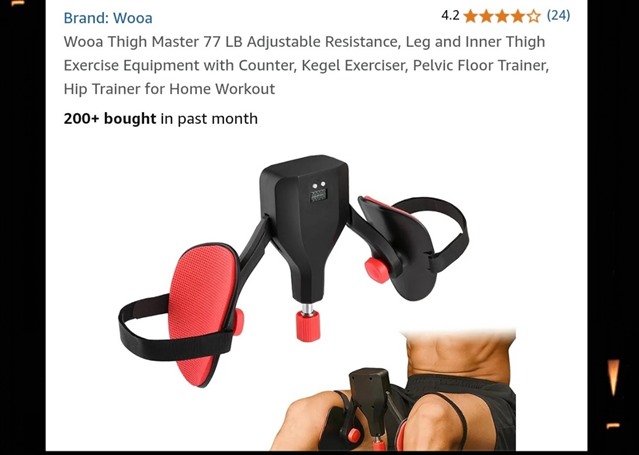I would like to start doing pelvic floor exercises before my operation to remove my prostate. I have seen various devices on websites that say they can help with the exercises. Can anyone recommend any devices that they found helpful?
Hello Jumping Jack . There is an app which the NHS recommends called the SQUEEZY APP. It explains how to do the exercises and for how long in order to build the pelvic floor muscles up. I am not sure what you mean by devices as you can do the exercises whilst sitting down at any time or place. The app allows you to get a reminder of when they are done.
Hi Alwayshope, thanks for the feedback. What i meant by devices is that I've seen equipment that you put between your legs and do exercises, that kind of thing. I didn't know if they are better than just doing exercises by yourself with no aids. I hope that makes sense.
Hi , I’d be interested to know whether I should be doing pelvic floor exercises whilst I’m going thru treatments and post treatments.
Prostap is obviously a contributing factor to loss of libido , but I’m worried things are degenerating down there if the muscles are weakening.
Thanks
There are plenty of devices for women to aid pelvic floor work but I haven't seen any for men.
It's definitely vital to ensure you've found your pelvic floor and started the exercises well before surgery. Once you've had surgery (and then had your catheter removed) it is so much harder to find the right muscle.
Good luck with your surgery.
Thanks Templebob, I have seen seen devices on Amazon that say they are for men and women, but when you start reading about them it becomes unclear if pelvic floor exercises are more for women than men and im not sure what the difference is for men and women. I dont want to waste my money if it doesn't work.
Hi Mitsen . The Kegel (pelvic floor) exercises help strengthen the pelvic floor muscles and the urethral sphincter, both of which can become weaker as you get older and as a result of such things such as pelvic radiotherapy. By doing them it can help with both bowel and bladder control so it is a good idea to get into the routine of doing them but it is important to ensure that you do them properly.
Morning,
I have not seen any devices, I found multiple instruction videos online and used those to work out what to do. Can definitely recommend starting a good routine as soon as possible. I’m sure being strict with myself about it pre surgery is now helping massively with my recovery after catheter removal (it was 2 days ago and I’m dry at nights and leaks have reduced considerably already).
if you do find a device, I would be intrigued as to what it is! The exercises will continue as a normal part of life from now on, so any additional support would be of interest!
wishing you all the best!
Hi, this is the equipment that i have seen on Amazon and had wondered if anyone had used them or would recommend them

Thanks for the info.
Fortunately my bladder and bowels have been fine , much to the surprise of my consultant.
I know I’m up against the wall re being able to have “relations” but I worry that I should be doing pelvic floor exercises.
My physiotherapist says it’s a myth and the consultant hasn’t mentioned it , but other patients have.
Having a chat with my GP next week , hope he has some answers , I’ll keep the site posted.
Hi.
I bought a kegel stimulation machine and used it religiously prior to the op and started again as soon as I had the catheter out. Seems to have been a waste of time and money. No improvement since the catheter came out I am 5 weeks post op and 3 west since catheter came out. I dont know what is normal but I am changing my pad 3/4 times daily. My problem is I have little no feeling so it is difficult to start a squeeze to stop me peeing. I have turned to the Mr Squeezy app and there is signs of some improvement, if only a little. I have also booked in to see a pelvic floir Physiotherapist, that has been difficult as they are few and far between. You can get your GP to refer you. You support nurse should refer you to the continence team. The problem about being referred in the n h s is the time you have to wait, so I have chosen to pay and I still have to wait four weeks to see someone.
Good luck
.
Whatever cancer throws your way, we’re right there with you.
We’re here to provide physical, financial and emotional support.
© Macmillan Cancer Support 2025 © Macmillan Cancer Support, registered charity in England and Wales (261017), Scotland (SC039907) and the Isle of Man (604). Also operating in Northern Ireland. A company limited by guarantee, registered in England and Wales company number 2400969. Isle of Man company number 4694F. Registered office: 3rd Floor, Bronze Building, The Forge, 105 Sumner Street, London, SE1 9HZ. VAT no: 668265007